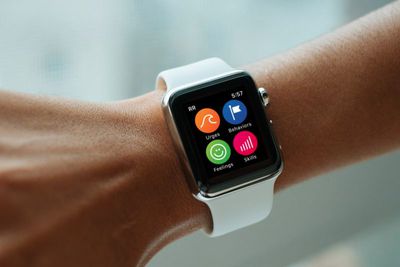Apple is donating 1,000 Apple Watches to a new study that aims to track biological changes in people with eating disorders (via CNBC).
The University of North Carolina's medical school will conduct the study, which is called BEGIN (or the Binge Eating Genetics Initiative), to better understand overeating disorders in which people eat large amounts of food uncontrollably in a small period of time.

People who purge or engage in excessive bouts of exercise following the binge are usually diagnosed with bulimia nervosa. The study will enroll 1,000 participants of ages 18 or older who have experience with either binge eating disorder or bulimia nervosa.
Each participant will be given a free Apple Watch, courtesy of Apple, so that researchers can monitor their heart rate to see if there are any spikes prior to binge eating episodes.
Enrolled participants will also sign up with a mobile app called Recovery Record, which they can use to log their thoughts and feelings, to be shared with a healthcare professional ahead of a session.
In addition, participants will receive tests to analyze their genetics and bodily bacteria that the researchers can better understand the root causes of the disease.
"We need to collect data from a whole lot of people to see what it looks like," said Cynthia Bulik, founding director of the Center of Excellence for Eating Disorders and author of Binge Control: A Compact Recovery Guide. "We want to know if it has a biological and behavioral signature."
Ultimately, researchers hope the collected data might help them to predict binge eating episodes before they happen. Ideally, this could result in a follow-up study in which participants received some kind of alert when they were at risk of binge eating.
According to the National Association of Anorexia Nervosa and Associated Disorders, at least 30 million people in the United States suffer from an eating disorder, yet the field of research remains underfunded.










 ('https://www.macrumors.com/2018/10/15/apple-donate-1000-apple-watches-eating-study/')
('https://www.macrumors.com/2018/10/15/apple-donate-1000-apple-watches-eating-study/')












